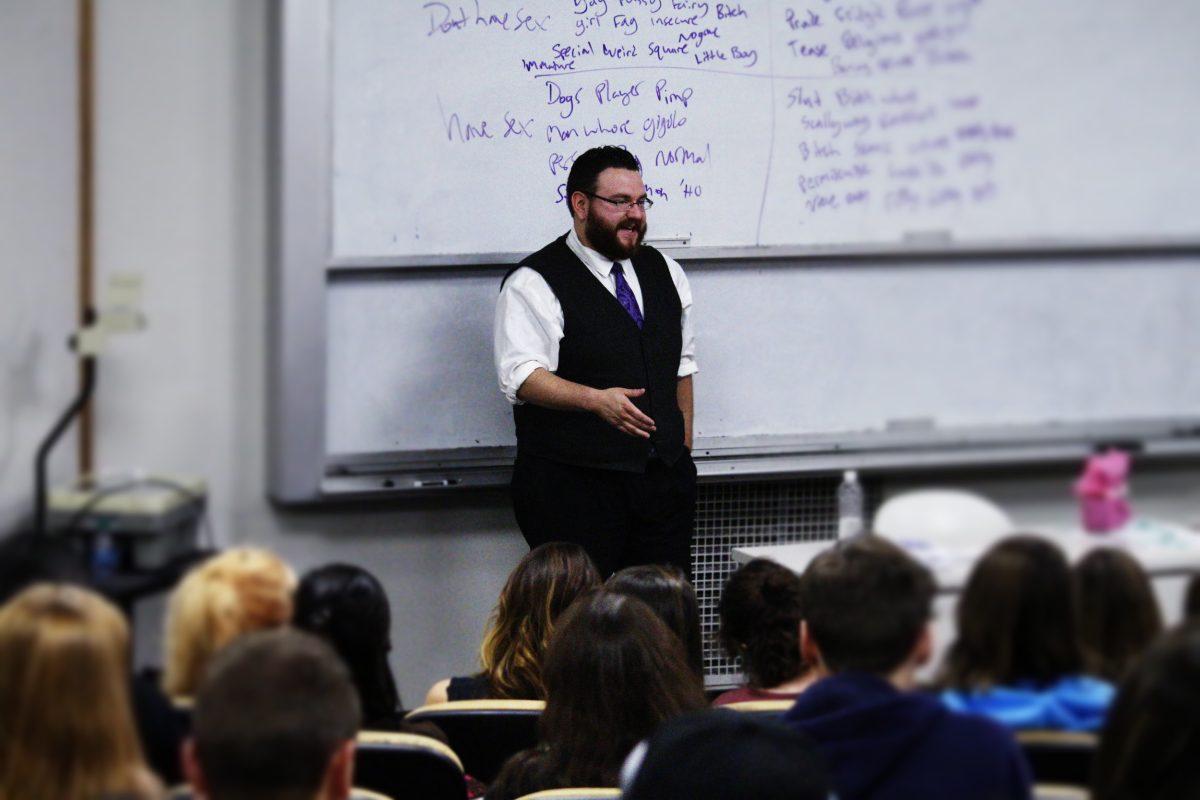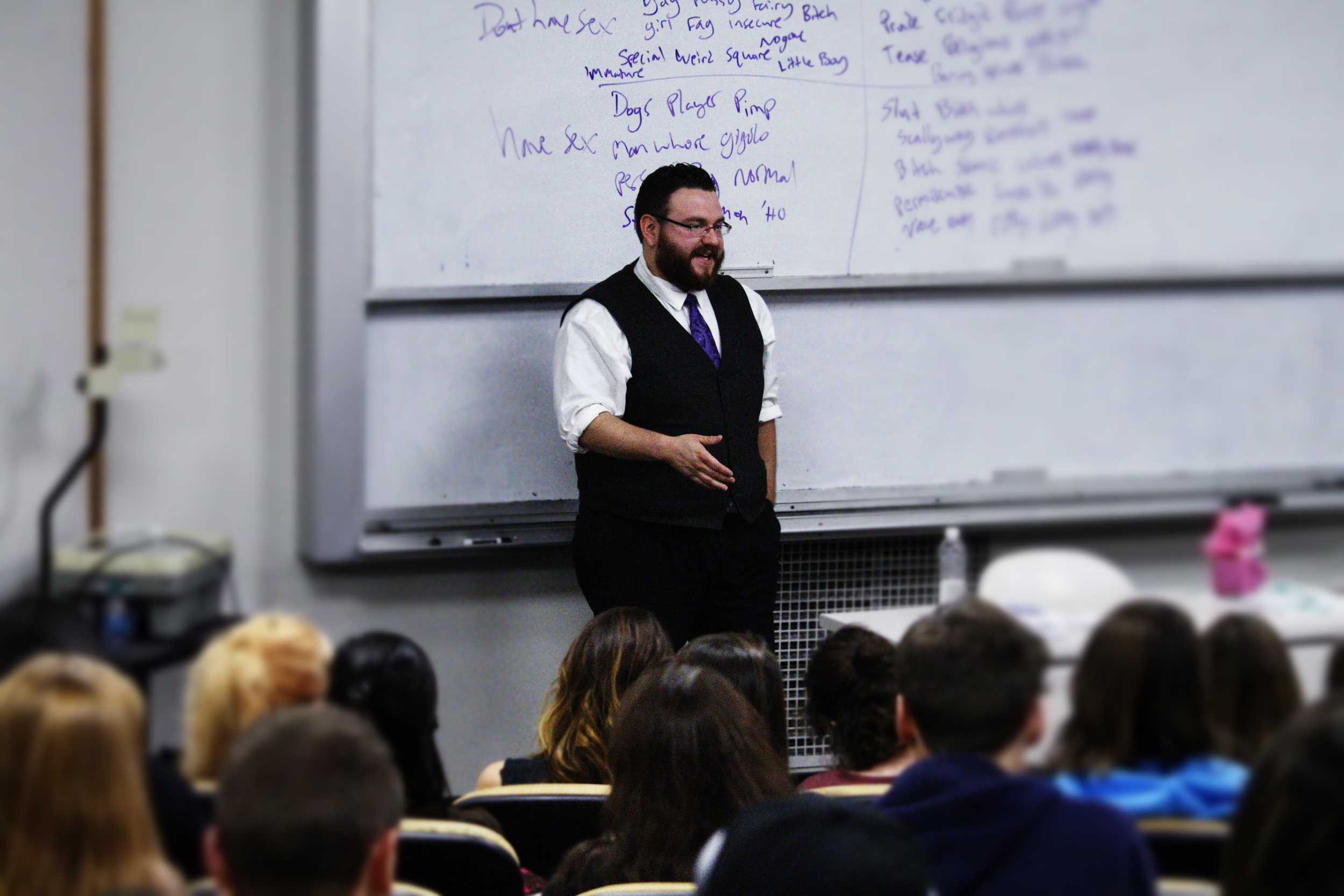In a packed lecture hall Rob Diaz asked a group of students, “How many of you have heard of the term ‘rape culture?’” A majority of hands shot up. Then he asked, “How many of you can give me a definition?” The hands dropped discouragingly and the room fell quiet. Only one brave girl kept her hand raised to fancy an educated guess.
Rape and sexual assault are difficult and uncomfortable topics for most to discuss, and therefore tend to be avoided. Diaz is the prevention manager at Verity, a small organization that serves as the single rape crisis center in Sonoma County.
Verity is a center for counseling and support for victims of rape and sexual violence, but also focuses on prevention through youth education.
Diaz’s job is to design and execute curriculum for community outreach education. He speaks to students ranging from kindergarten through college about consent and safety.
The focus of Diaz’s lecture last Thursday was “rape culture” and the ways in which our society deals with the topic as a whole. Diaz emphasized that avoiding the subject only further contributes to the problem. Without an active dialogue, rape is still surrounded by a shroud of disillusion, fear and shame.
Diaz skillfully explained the issue with the present dialogue and how people unconsciously contribute to the problem. For example, there is a tendency to assume that males are more likely to commit acts of sexual abuse than women, which is not always the case.
Exact statistics are hard to gather, since rape and sexual assault can sometimes be underreported crimes; also, the lawful and moral definitions of rape are not always aligned.
The rhetoric can also very hetero-normative, implying only acts between men and women. This isolates LGBTQI victims who may be excluded from this definition of rape.
“We assume that men are always the perpetrators and women are always the victims, and this is a problem,” said senior Katrina Pimental, who attended the event. “Many different forms of sexual violence occur, and when we limit how we discuss rape we exclude people who need help.”
Attending lectures and opening up dialogue with students is one way Diaz hopes to influence others to change their way of thinking.
“Rape culture is hard to define because it’s not black and white,” said Diaz. “It is not the reason people commit rape, it’s the reason that we ignore it; it’s the reason we play it down, and why it is so prevalent in our society.”
He explained that rape culture is heavily influenced by cultural norms, from films and music, to gender stereotypes and social practices.
Despite these engrained societal influences, Diaz believes that educating young people and spreading awareness is a key step towards a solution. The goal of early prevention education is to teach adolescents what it means to give consent, and making sure they understand that they own their bodies.
Through education the goal is ultimately for boys and girls to able to recognize the signs when they get older if they or someone they care about is in trouble. On the flip side, they are learning to respect others’ bodies as well.
For parents, Verity encourages them to educate and empower their children.
“Even though it’s the parents’ job to teach their kids about what their body rights are, we empower them to feel okay and comfortable with that,” said Diaz.
Verity’s curriculum is designed with careful consideration of the child’s maturity level and degree of understanding. With the small children for example, Diaz talks solely about body rights, a topic that even young minds can comprehend.
The goal is simply to teach children that they own their bodies, and that it’s okay to say “no” if someone is violating those rights.
Diaz stressed that parents play a very important role in this development. Though it’s difficult for many to discuss, it’s important to have safe and open dialogue.
“There’s a weird assumption that if we don’t talk about rape and sexual assault with our children, it will never happen,” said Diaz.





![[Both photos courtesy of sonoma.edu]
Ming-Ting Mike Lee stepped in as the new SSU president following Sakakis resignation in July 2022](https://sonomastatestar.com/wp-content/uploads/2024/04/CC4520AB-22A7-41B2-9F6F-2A2D5F76A28C-1200x1200.jpeg)



























